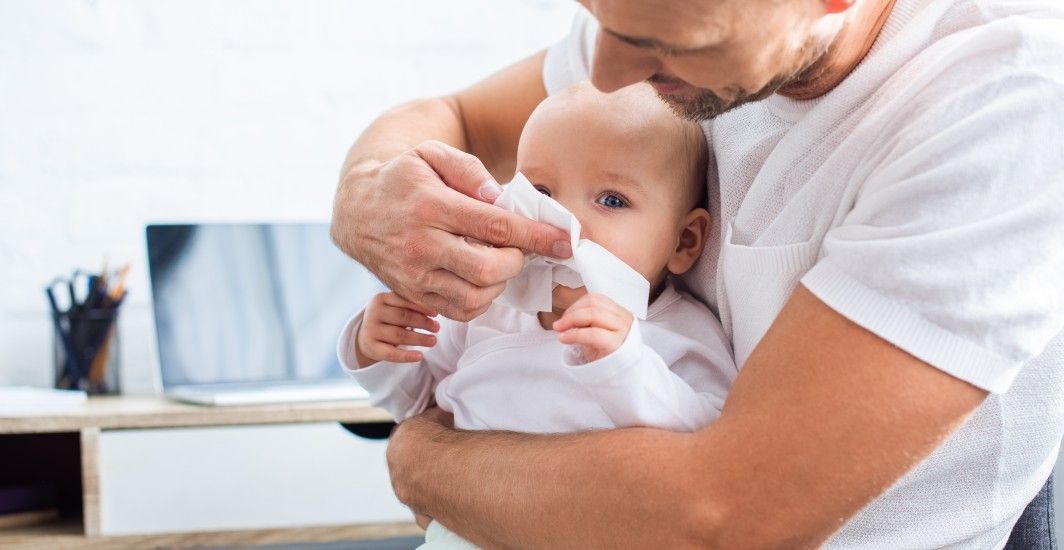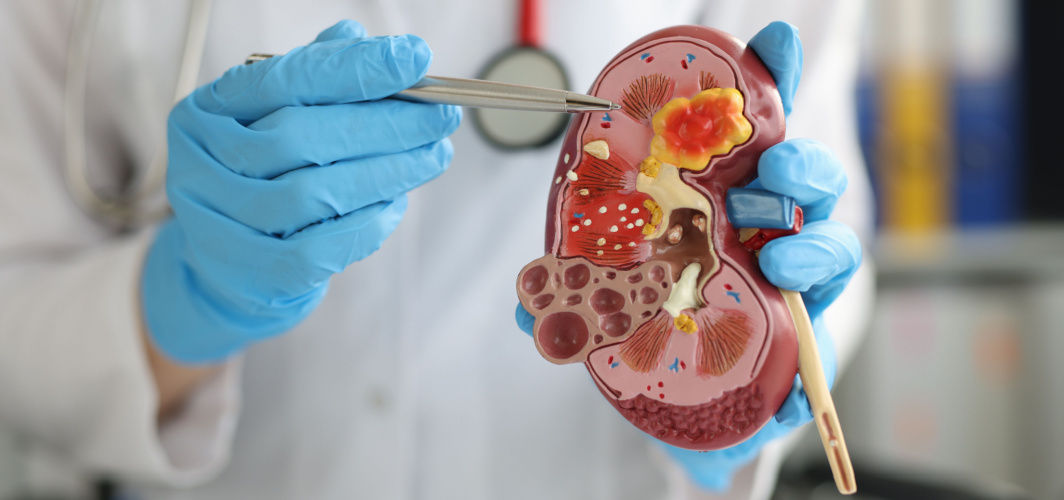- Home
- Blog
- General Health
Best Ways to Relieve a Cold in Babies
General Health
Best Ways to Relieve a Cold in Babies
By Apollo pharmacy, Published On- 03 June 2025
Share this article
0
0 like

Babies catching a cold can be incredibly distressing, not just for them, but for worried parents too. A baby’s immune system is still developing, which makes them more susceptible to common colds, especially during seasonal changes or when they’re exposed to viruses. As a parent, all you want is to ease their discomfort and help them breathe, feed, and sleep better. While colds are usually harmless and resolve on their own, there are some tried and tested ways to relieve symptoms and soothe your little one.
In this article, we’ll explore the most effective ways to relieve cold symptoms in babies, including safe home remedies, gentle care tips, and understanding Maxtra syrup uses for baby, a commonly recommended medicine for cold relief.
What Causes a Cold in Babies?
The common cold is caused by a viral infection, typically a rhinovirus, that affects the upper respiratory tract. Babies are particularly vulnerable to these infections due to:
Immature immune systems
- Exposure to infected family members or caregivers
- Touching contaminated surfaces or toys
- Being in enclosed environments such as daycare
Most colds in babies are mild and self-limiting, lasting between 5 and 10 days. However, because babies can’t blow their nose or communicate how they feel, even a simple cold can cause considerable distress.
Signs and Symptoms of Cold in Babies
Recognising the symptoms early can help you manage the cold effectively. Common symptoms include:
- Runny or stuffy nose: One of the earliest and most noticeable signs of a cold in infants.
- Sneezing: Frequent sneezing helps the baby’s body clear nasal irritants.
- Mild cough: Caused by postnasal drip or throat irritation.
- Irritability or fussiness: Babies may become cranky due to congestion or discomfort.
- Difficulty sleeping: Nasal blockage can make it hard for babies to sleep soundly.
- Watery eyes: Often accompany congestion or nasal irritation.
- Mild fever (sometimes): A low-grade fever may occur as the body fights off the infection.
- Reduced appetite: Blocked noses and general discomfort can make feeding less appealing.
Most colds in babies are mild and can be managed at home. However, if your baby is under three months old and develops a fever, has breathing difficulties, or seems unusually drowsy, consult a doctor immediately for proper evaluation and treatment.
Have more questions?
Best Ways to Relieve a Cold in Babies
Here are the most effective and parent-approved ways to relieve cold symptoms and help your baby feel better:
1. Keep Your Baby Hydrated
- Hydration is crucial to thin mucus and prevent dehydration.
- Breastfeeding or Formula Feeding: Continue feeding your baby regularly. Breast milk contains antibodies that support the immune system.
- Small Frequent Feeds: Babies with colds may struggle to feed due to nasal congestion, so offer smaller but more frequent feeds.
2. Use a Nasal Saline Spray and Bulb Syringe
- A blocked nose can make it difficult for babies to feed and sleep. Saline drops or sprays are safe and effective:
- Saline Nasal Drops: Use 1 to 2 drops in each nostril to loosen mucus.
- Bulb Syringe: Gently suction out mucus using a soft rubber bulb syringe after saline drops. This can significantly improve breathing.
- Repeat this process before feeds or bedtime for better comfort.
3. Use a Cool-Mist Humidifier
- Dry air can irritate your baby’s nasal passages and worsen cold symptoms.
- Cool-Mist Humidifiers: Add moisture to the air, making it easier for your baby to breathe and sleep.
- Clean Regularly: Ensure the device is cleaned daily to prevent mould and bacteria build-up.
- Avoid warm mist humidifiers as they can pose a burn risk.
4. Elevate Baby’s Head During Sleep
Lying flat can worsen nasal congestion. To ease breathing:
- Tilt the Mattress Slightly: Raise the head of your baby’s crib mattress slightly (by placing a towel underneath, not directly under your baby).
- Hold Baby Upright: During naps, holding your baby in an upright position may also help reduce congestion.
- Never use pillows directly under a baby’s head due to the risk of suffocation.
5. Offer Gentle Steam Therapy
- Steam can help clear nasal passages.
- Bathroom Steam: Sit with your baby in a steamy bathroom for 10–15 minutes. Run hot water in the shower (keep baby away from hot surfaces) and allow the steam to loosen mucus.
- Do Not Use Vapour Rubs: Avoid using menthol-based rubs on babies under two years old unless prescribed.
6. Keep Your Baby Comfortable
Comfort is key to recovery:
- Dress in Light Layers: Avoid overdressing. Babies with fevers should be kept cool but not cold.
- Keep the Environment Calm: Reduce noise and activity around your baby to help them rest.
- Cuddle and Soothe: Skin-to-skin contact can reduce irritability and support healing.
7. Syrup for Cold in Babies
One of the most commonly prescribed medications for colds in babies is Maxtra Syrup. It is often used under the guidance of a paediatrician for relief from cold and allergic symptoms.
- Maxtra Syrup
- The common Maxtra Syrup uses for babies includes:
- Helps relieve nasal congestion, runny nose, sneezing, and watery eyes.
- Reduces allergic symptoms associated with cold or viral infections.
- Often prescribed in cases of seasonal allergies, sinus congestion, or common cold symptoms.
- Dosage and Safety
- Following are the essential dosage guidelines and safety precautions when giving cold syrup to infants:
- Always use under medical supervision. Do not self-medicate.
- Dosage is based on your baby’s age and weight.
- Administer using a baby-friendly dropper or spoon as per the doctor’s instructions.
- While Maxtra syrup can be highly effective, it is not suitable for all babies. Discuss any underlying health conditions with your paediatrician before using it.
8. Maintain Good Hygiene
Prevent the spread of cold viruses:
- Wash Hands Frequently: Before feeding or touching your baby.
- Sanitise Surfaces and Toys: Regularly disinfect toys, pacifiers, and baby bottles.
- Avoid Close Contact with Sick Individuals: Keep your baby away from people with cold or flu symptoms.
9. Avoid Over-the-Counter Medicines Without Prescription
- Many cold medications are not safe for babies under two years old.
- No Cough Syrups or Decongestants: Unless prescribed.
- No Aspirin: It can cause Reye’s syndrome in children.
- Stick to baby-safe remedies and consult your paediatrician before giving any medication.
10. Monitor and Know When to See a Doctor
Most colds are minor, but you should seek medical help if:
- Your baby is under three months old and has a fever over 38°C.
- Breathing becomes rapid or laboured.
- The baby has difficulty feeding or is not producing enough wet nappies.
- The symptoms worsen after five days or do not improve after ten days.
- The baby appears unusually sleepy or irritable.
- Early intervention can prevent complications like ear infections, bronchiolitis, or pneumonia.
Conclusion
Relieving a baby’s cold is more about easing symptoms and ensuring comfort than curing the virus itself. While colds usually clear up on their own, using safe and effective strategies like saline sprays, steam, hydration, and maintaining a humid environment can significantly soothe your little one. Understanding the role of medications like Maxtra syrup is also important. When prescribed correctly, Maxtra syrup can be an effective way to manage nasal congestion and cold symptoms. However, its use should always be under a paediatrician’s guidance. Now that you know the Maxtra syrup uses for baby, remember not to rely on it as a first line of treatment without professional advice. Being calm, attentive, and informed can make a world of difference when your baby has a cold. With proper care, your baby will be back to smiles and giggles in no time.
Services
General Health
Leave Comment
Services
Recommended for you

General Health
Calcium and Vitamin D Tablets: Who Needs Them and Why
Discover who needs calcium and vitamin D tablets, their key benefits for bone and muscle health, and how to take them correctly. Learn about supplement types, ideal dosages, and who may be at risk of deficiency.

General Health
10 Travel Essentials For Men While Going On A Vacation
From grooming tools to health essentials, ensure you have the right items in your travel kit. With these 10 travel essentials for men, you're well-equipped for any destination, ensuring a memorable and comfortable travel experience.

General Health
Kidney Failure: Symptoms, Cause, Diagnosis, Treatment, Prevention
Kidney failure may be caused by factors like chronic kidney disease, acute kidney injury, genetic predisposition, and more. The symptoms include loss of appetite, fatigue, swelling in the legs, etc. It can be treated through lifestyle changes and medications.
Subscribe
Sign up for our free Health Library Daily Newsletter
Get doctor-approved health tips, news, and more.
